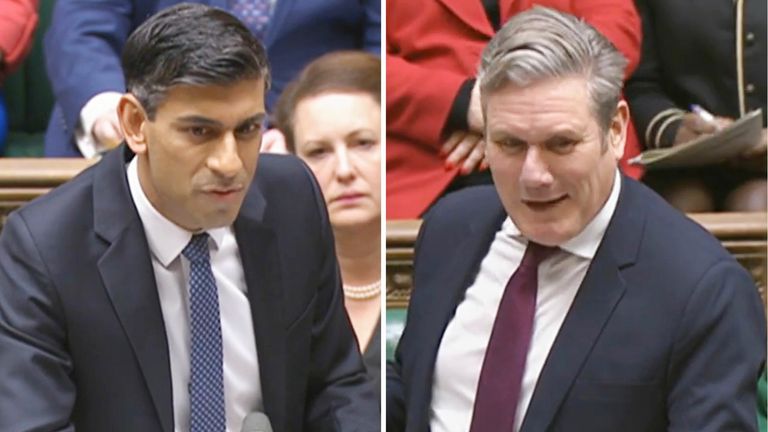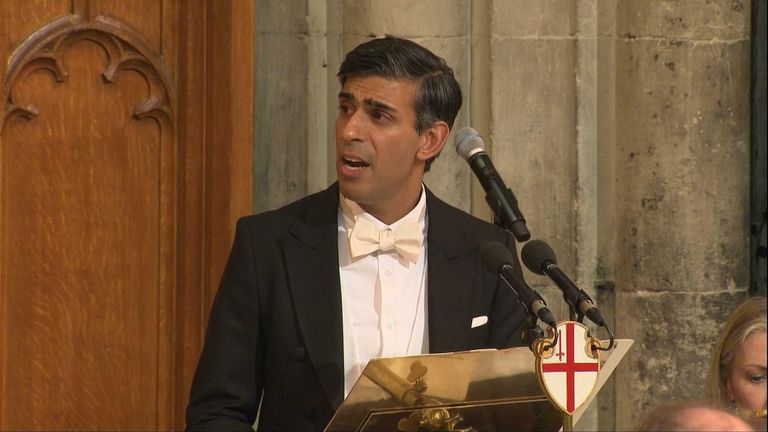He’s done it! It was a low bar to jump over but at least Rishi Sunak has lasted longer as prime minister than Liz Truss.
The nation can be reassured that there will not be a fourth prime minister this year, or even a general election before Christmas, as Boris Johnson subjected the country to in 2019.
This week Sunak passed the new shortest record set by Truss by serving in Number 10 for more than 44 days without resigning.
After the political turmoil brought on by two “disrupter” prime ministers, the public seems pleased by the period of calm which the diligent Sunak has brought with him. In opinion polls he is personally much more popular than his party and about on a par with the leader of the opposition, although Sir Keir Starmer’s Labour is way ahead of the Conservatives.
The people who seem least content, least respectful, and least inclined to give the new prime minister a break are on his own side. He is finding it next to impossible to please the country and the Conservatives at the same time.
Faced with these difficulties Sunak has opted to keep a low profile. Beyond a list of unmissable prime ministerial engagements at home and abroad, he has scarcely been seen in public or on social media. Tory voices have joined his opponents attacking him as an “invisible prime minister”.
Sunak’s ‘dullness dividend’
The circumstances in which he came to power meant that Sunak had no chance of a honeymoon period: a bold 100 days in which he could “hit the ground running” and “come up with fresh ideas”.
Liz Truss had just tried that and crashed the economy.
Sunak and Jeremy Hunt, the chancellor who had already been chosen for him, faced an immediate crisis and a repair job to restore confidence. On the financial front Sunak has achieved what was asked of him.
There has been a “dullness dividend”. Britain’s economic standing is now no worse than it was before the shock of the Truss/Kwarteng mini-budget, interest rate rises are similar to those in equivalent economies, and normal service has resumed on debt markets.
Sunak has kept his head down, moving surreptitiously, because many of his measures – such as putting up taxes and trying to maintain public spending – are “unTory”, according to critics on his own side.
But then Conservative activists never wanted him as leader – after all they rejected him this summer in favour of Truss when they had the chance to vote for him.
Sunak’s paid a price for becoming PM
Sunak was once the rising star of the party. Back then he hired experts to run a slick personal publicity campaign, including videos and postings of his activities as chancellor branded with his signature.
This self-promotion backfired as his relationship with the then prime minister Johnson soured and as their policy differences widened.
Earlier this year “Rishi” was tarnished by being fined along with Johnson for breaking COVID party rules. Around the same time his public image as a future UK prime minister was shattered when the media were pointed towards his wife’s non-dom tax status and his own possession of a US green card.
Tory MPs installed Sunak as party leader and prime minister because the wider public, rather than Tory activists, saw no credible alternative if a general election was to be avoided.
The MPs knew that they had to prevent another ballot of the party membership which would probably have re-imposed the disgraced Johnson on the nation.
Sunak also had to pay a price to get to the top. He was effectively blackmailed into giving key jobs in the cabinet to people who would otherwise have thrown their weight behind another membership ballot, which was the last thing the national interest needed and which he might have lost.
Suella Braverman and Gavin Williamson, who had both previously been sacked from government for misconduct, were the most prominent of these compromise appointments.
They have got in the way of Sunak delivering his promise that “the government will have integrity, professionalism and accountability”.
Williamson has already had to resign for bullying, Braverman is under investigation for similar offences, as is Dominic Raab, whose previous track record barely justified his reappointment as deputy prime minister.
Meanwhile Sunak was unable to find a place in government for his closest ally at Westminster, and former boss, Sajid Javid, who announced this week that he is standing down as an MP.
Beware the Tory man-eating tigers
Sunak has had to strike similar compromises with the broader range of Conservatives in parliament.
Tory MPs have tasted blood so often in ousting four PMs – Cameron, May, Johnson and Truss – that they are the political equivalent of man-eating tigers, unable to stop.
Some of them are already predicting that next spring’s local election results will be so bad that they will have a chance then to get rid of “Rishi” and perhaps replace him with “Boris”. Many have already abandoned hope that the Conservatives can win the next general election and are thinking only of their own skins.
For more than a dozen MPs so far that means not standing for re-election. Quitter Matt Hancock epitomized the prevalent mood of self-interest this week when he lectured the prime minister that he was going because “the Conservative Party must now reconnect with the public we serve.”
Others are trying to bend the government to policies which will go down well with voters in their constituencies even if they are not necessarily in the national interest.
Sunak has little appetite to fight ideological battles
In spite of the notional Conservative majority in the Commons, Sunak’s programme is constantly vulnerable to rebellion and potential defeat.
Shire Tories don’t want house building in their back yard, so this week Sunak U-turned on house building.
Landowners and the construction industry like on-shore wind farms so Sunak U-turned to favour them.
Campaigners in the North East want the jobs generated by a new coal mine in Cumbria, so the government has given it the green light, overruling its own environmental advisors.
Sunak has little appetite to fight ideological battles with his own side in parliament, continuing instead to concentrate on practical problems, away from parliamentary scrutiny where possible.
Business managers have dropped the Schools Bill, pleading pressure of parliamentary time, even though the House is actually sitting for fewer hours than usual, and often goes home at teatime on Wednesday.
Raab’s plans for a British Bill of Rights are set to be shelved, in favour of practical measures on strikes and small boat migrants.
The avoidance of hard hats
Chancellors of the Exchequer concentrate on one big thing, surfacing rarely to go public. Gordon Brown was shocked how constant the demands on him were when he became prime minister.
Former Chancellor Sunak is also finding out the hard way – as was shown by his initial decision, quickly reversed, not to attend the COP 27 meeting in Egypt. Since then he has only been out and about when he can’t avoid it, at the G20, Remembrance Day, and the Lord Mayor’s banquet.
Stung by missteps of his predecessors and his former self, Sunak has let it be known that he will not be donning hard hats and high vis jackets for what have become standard photo opportunities.
He will be hoping that trying to do the right thing, slowly and cautiously, will have political dividends over time, rather than being merely its own reward. As yet there is little sign that his low profile is paying off for the Conservatives.
Sunak’s absence of PR bluster has upset Tory cheerleaders who have come to expect the swagger of a Cameron, Johnson or Truss. But then, in the long run, such overconfident celebrity behaviour did neither them nor the UK much good.



